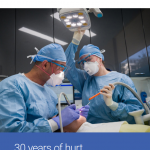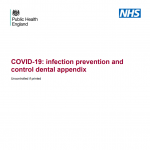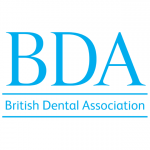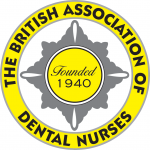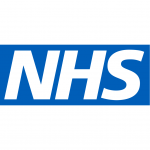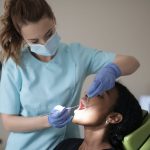England’s Deputy Chief Dental Officer, Eric Rooney, is retiring at the end of this month. In the latest NHS dentistry and oral health update, he bids farewell to the sector while reflecting on the last 12 months and his career as a whole.
“It hardly seems a year since I was working on minimising the disruption to the supply of our normal and routine dental face masks. All due to a new novel virus affecting China,” says Rooney. “As the year goes by, so come birthdays and anniversaries, and this week it’s my birthday. That’s the same, but it’s different. Not just because of social distancing and the impact of Coronavirus, but because I have reached the normal NHS retirement age!
“Just like last year, I can hardly believe how time has flown, from being a fresh faced 17 year-old entering Dundee Dental School, to this last tumultuous year. Throughout that time, the dental profession, it’s institutions, and the wider NHS have been a massive part of my work life. For the support and camaraderie of colleagues across dentistry, health and beyond, I will always be grateful, as I will for the longstanding support of my wife and family throughout my career.
“There is still much to be done to improve our NHS services, for the good of patients, the profession and the taxpayer and there will continue to be difficult times ahead, but I have every confidence in our profession and in the wider health system that together they can build a better future.”
Paying tribute to Rooney, CDO England Sara Hurley states: “It has been an incredible honour and a real pleasure to work alongside Eric Rooney as Deputy Chief Dental Officer for England. His wry, dry, humour and his humility and humanity have shaped not just the office of CDO but in the genuine warmth of his sharing of knowledge he inspires all those that have the good fortune to work alongside him. He truly cares and his quiet deliberate passion to do the right thing sets a benchmark that many aspire to, but few can claim to have achieved. Eric’s impressive CV, including an MBE for services to Dentistry in the 2015 New Year’s Honours and the plethora of national and regional achievements underline his clarity in advocacy for oral health and ensuring that patients receive the most effective dental care. His contribution as co-author of the 2009 review of NHS Dentistry, known as “the Steele Report” and his clear thinking and evaluation of the Government’s Dental Contract Reform programme have shaped the intent for future service provision with an improved offer for patients and professionals alike.”
Eric Rooney’s career in dentistry began in 1983 and, in the words of the CDO, has seen him go from “clinical practice to public health, designing and delivering regional and national initiatives, shaping contract and commissioning policy in conjunction with the British Dental Association, Department of Health and latterly NHS England.”




